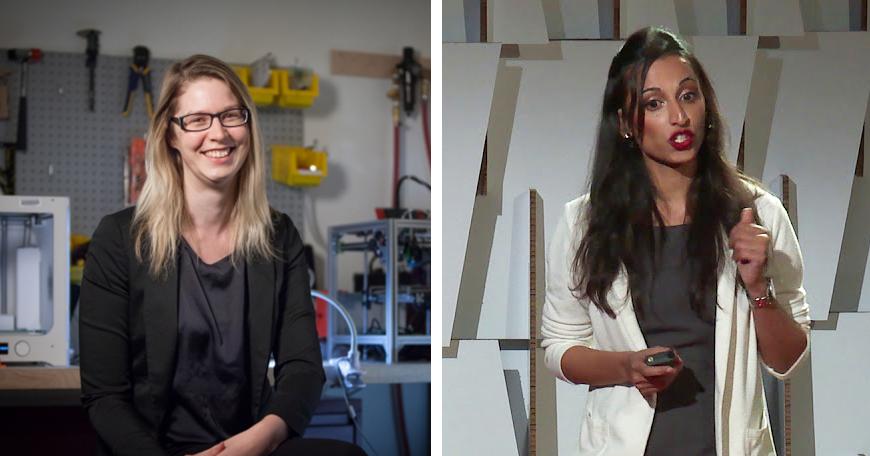Adaptive Learning of Motor Skills by Varying Task Difficulty

In this talk, Prof Stefanie Mueller will demonstrate how to design and fabricate physically adaptive interfaces for learning motor skills. These interfaces automatically vary the difficulty of the task being learned through shape adaptation. The main benefit of adaptive training aids is that they allow learners to train at their optimal challenge level that has high learning potential. For instance, the adaptive training wheels for bikes sense a learner's current balancing skills and then automatically adjust their height to provide more or less balancing support. User studies show statistically significant learning gain in auto-adaptive condition compared to static and manually-adaptive conditions.
Mueller and her team also built a user interface to deploy the auto-adaptation algorithm for the learning tool. Their prototypes demonstrate applicability of their approach across a variety of domains such as life skills (biking), sports (basketball, golf), and physiotherapy (wobble board). They also illustrate implementation of this approach for 16 additional prototypes built by students in a studio setting. Moreover, they present a novel way of designing adaptive physical interfaces aimed that can make learning of motor skills scale-able and hence, more accessible.
Stefanie Mueller is an Assistant Professor at MIT’s Electrical Engineering and Computer Science Department (joint with MIT Mechanical Engineering) and a member of MIT CSAIL. In her research, Stefanie develops novel hardware and software systems that advance personal fabrication technologies. Stefanie publishes at the most selective HCI venues ACM CHI and ACM UIST and has received multiple best paper award and honorable mention awards at both conferences. She is currently serving as an ACM CHI Subcommittee Chair for 2019/2020 and will serve as the ACM UIST program chair for 2020. For her work, Stefanie has received an NSF CAREER award, was named a Forbes 30 under 30 in Science, and received the ACM SIGCHI Outstanding Dissertation Award and an ACM Doctoral Dissertation Award Honorable Mention. Stefanie has also been an invited speaker at universities and research labs, such as MIT, Stanford, Harvard, UC Berkeley, CMU, Microsoft Research, Disney Research, and Adobe Research.
Dishita Turakhia is a PhD student in the Human Computer Interaction Engineering (HCIE) Group at MIT CSAIL. Her background is in computational design, fabrication and architecture. Over the last decade, her interests have transitioned from designing interactive spaces, robotics and kinetic architecture to neuroscience, artificial intelligence and building systems for learning. Her current work focuses on building adaptive tools for mastering motor skills using personal fabrication.
Read MIT student Kevin Shao's reflections on Mueller and Turakhia's xTalk.

